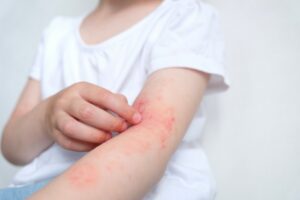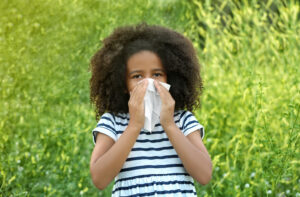Allergy
What Are Allergies?
Allergies occur when your immune system overreacts to external substances — such as pollen, bee venom, pet dander, medication, or a food — that are usually harmless to most people. Allergies can develop at any age and can also change over time.
If you’re suffering allergies, you’re not alone! In fact, more than 50 million Americans suffer from allergies each year (Source: Center for Disease Control).
Signs & Symptoms of Allergies
Allergy sufferers experience a range of symptoms ranging from mild to severe. Allergy symptoms may include:
In severe cases, one may have a life-threatening reaction called anaphylaxis. Anaphylaxis is a rare but extremely serious reaction. Symptoms may occur suddenly and then rapidly progress to trouble breathing, hives or swelling, throat tightness, vomiting, nausea, fainting, or even death.
To assure that you recognize and have a management plan for your allergy symptoms and any severe reactions, it’s important to be under the care of an allergy specialist.
We provide a variety of healthcare services for allergy sufferers.
How We Can Help
Education & Guidance
We will help educate you about your allergies, treatment options, and the best way to manage them day-to-day.
Diagnosis of Allergies
After a comprehensive clinical evaluation, where appropriate, allergy testing may be recommended. We offer both skin and blood testing for foods, environmental, insect stings, and certain drug allergies.
Treatment of Allergies
There are three main treatment options including:
- Various over-the-counter and prescription medications
- Desensitization (i.e. allergy shots) or other immunotherapy, a treatment course that helps your immune system learn not to overreact when allergens are present
- Non-medication options, such as avoiding the offending allergens and other lifestyle habit change



